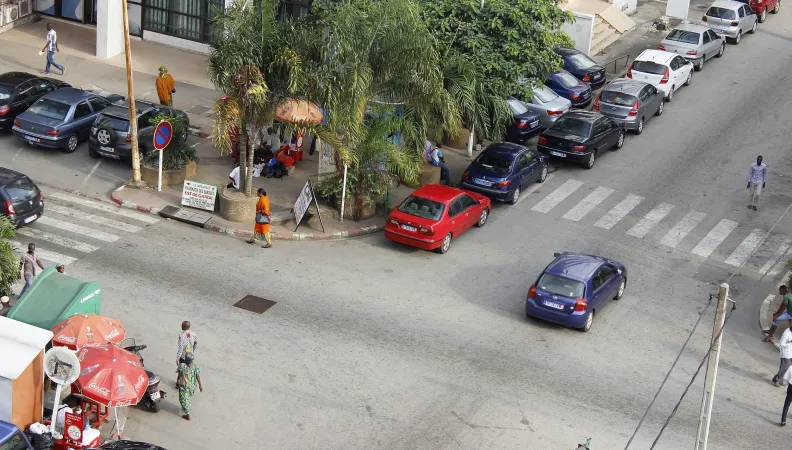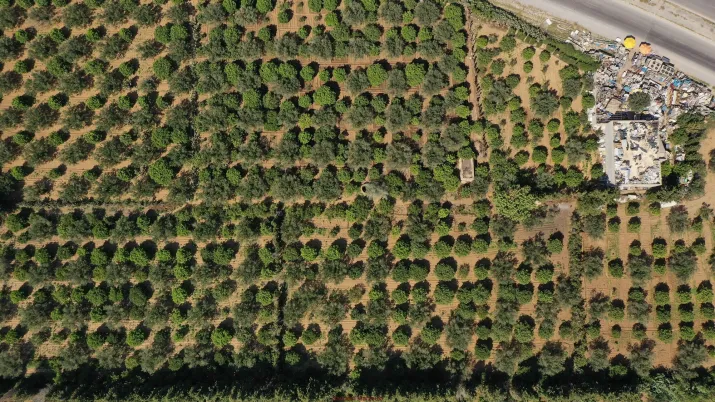Share the page
GEMMES Côte d'Ivoire: designing a tool for the sustainable energy transition

-
Project start date
-
2017Status
Ongoing
-
Project end date
-
2022
-
Country and region
-
Location
-
Côte d'Ivoire
-
Partners
-
CIRES Unit for the Analysis of Economic Policies (CAPECs), Mines Paris - PSL, Félix Houphouët-Boigny National Polytechnic Institute, Ministry of Mines, Oil and Energy in Côte d'Ivoire
-
Research program
Côte d'Ivoire, whose current electricity production is largely based on natural gas, has affirmed its commitment in favor of the energy transition. The GEMMES Côte d'Ivoire project studies the interactions between the productive, financial and ecological spheres through macroeconomic modelling, thus constituting a real tool for Ivorian policy makers.
Context
Elaborating development policies in line with the principles of strong sustainability is a complex issue because of the tensions that may exist between different Sustainable Development Goals. The desire to integrate 42% of renewable energies in Côte d'Ivoire's energy mix by 2030 therefore requires a reflection on the possible sustainable development trajectories, a subject at the heart of the GEMMES Côte d'Ivoire project.
This project is part of AFD's modelling work, that integrates climate dynamics, both adaptation and mitigation, into macroeconomic forecasts to inform public policy choices in this area. AFD is developing a general theoretical model on the one hand, and national models applied to specific cases and adapted to the characteristics of each country (including the GEMMES Côte d'Ivoire model) on the other hand.
This collaboration between AFD, the Ministry of Planning and Development of Côte d'Ivoire and Mines ParisTech is one of the components of the memorandum of strategic dialogue, which aims to develop research activities, their dissemination, as well as their synergies with public policies.
Objectives
GEMMES Côte d'Ivoire's first goal is to better understand the interactions between the economy and socio-economical aspects. It focuses on the macroeconomic impacts of the energy transition and their ability to create favorable conditions for poverty reduction.
One of its specificities is that it aims to foster dialogue on the ecological transition between researchers and policy makers, both at national and international levels. GEMMES Côte d'Ivoire aspires to propose a tool to facilitate political decision-making, proposing transition trajectories in favor of climate. It could then provide elements contributing to the definition of an energy transition strategy for 2050 in line with Côte d'Ivoire’s poverty reduction and climate goals.
More broadly, GEMMES Côte d'Ivoire is helping to consolidate AFD’s position as a main stakeholder on low-carbon transition and strong sustainability.
Method
GEMMES Côte d'Ivoire develops a multidimensional and transdisciplinary approach focused on the effects of the energy transition. The project is based on modelling exercises:
- Techno-economical modelling of the energy system, developed by Mines Paris Tech
- Macroeconomic modelling, developed by AFD and the Ivorian think tank CAPEC
The methodological framework of GEMMES has been adapted to meet the characteristics of the Ivorian economy. A particular focus was placed on the stability of the trade balance and public debt. Moreover, the coupling between the energy model and the macroeconomic model allows to perceive the interactions between the dynamics of energy transition and macro-financial stability. In addition, coupling can highlight the benefits of an ambitious energy transition in terms of external sustainability and job creation.
Results
Three scenarios quantifying the long-term macroeconomic effects of the energy transition have been established. As a result, the development of renewable energy could reduce the average production cost by 20% under certain scenarios, notably through increased investment in the solar battery sector.
The development of this sector would also generate positive socio-economic impacts, concerning growth, employment and the trade balance, while increasing bioelectricity generation capacity improves the income of 4 million people in rural areas. This environment is then more favourable to the deployment of specific policies to fight poverty.
Research findings
The project has conducted the first GEMMES modelization exercise incorporated in the ongoing public policy dialogue between AFD and Ivorian public stakeholders. The project has provided the Ivorian government with models highlighting the opportunities and contradictions within the country's trajectory, between the possible energy choices, the environmental agreements to be considered and the financial implications of each scenario.
Want to stay updated on AFD’s latest research?
Contact
-
Antoine GODIN
Economist - Modeler



